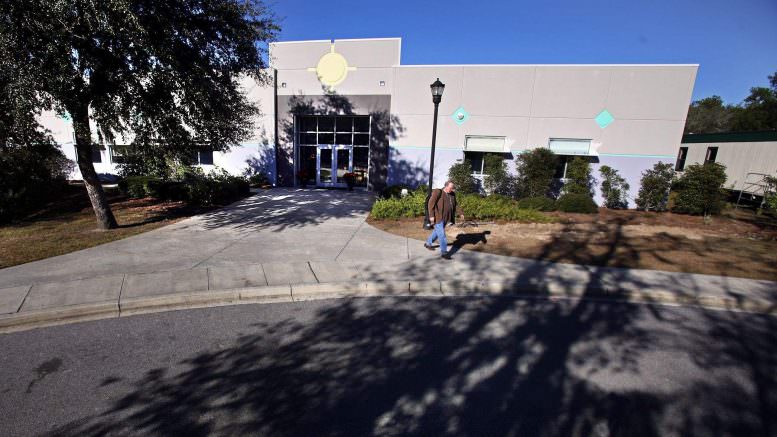When the technology firm SPARC sold the core of its business last fall, its executives were in for a big payday.
Their incentive packages, intended to give them a stake in the company’s success, awarded them a slice of the eight-figure deal, which was among the highest-profile and priciest buyouts in Charleston’s technology industry in recent years.
The question is, how much should they have made? Two top executives at SPARC have raised that issue in a lawsuit they filed in Charleston County against the company’s former CEO and founder, Eric Bowman.
The two executives — Elizabeth Buske, who now runs the Clements Ferry Road business, and Randall Chitwood, whose title before the sale was chief of staff — allege Bowman misused millions of dollars and cut into their payouts.
They allege that, among other things, he paid his father about $2 million for work he didn’t do, and that he used company money to cover personal expenses — such as hiring a nanny, paying legal fees and settling a lawsuit.
The $53 million sale, they say, should have netted somewhere between $46 million and $48 million. Instead, they say it yielded $39.4 million, lowering their payout. Buske and Chitwood say they want a full accounting of SPARC’s finances, along with unspecified damages for the value they say they lost. Bowman’s actions, they say, “breached his fiduciary duty” to employees who received incentive grants.
In a formal response filed in June, Bowman, who now owns the Charleston Battery soccer team and two other local tech ventures, denied the majority of the allegations. And his attorneys have argued that the SPARC founder didn’t owe any fiduciary responsibility to employees who had received incentive packages, a question that doesn’t appear to have been considered before by South Carolina’s courts.
Circuit Judge J.C. Nicholson Jr. denied a request last week to dismiss the fiduciary claim, saying he wanted the facts of the case to be fleshed out before making a decision on “a novel issue.”
A key question in the lawsuit centers on the way the incentives were structured: Buske and Chitwood received “unit appreciation rights” and “member appreciation rights,” not stock. According to legal documents, that means they were entitled to a cut when the company was sold, even though they didn’t have an outright ownership stake. Their attorneys argue that the incentives they received gave them something akin to ownership.
“We are alleging that they had an ownership interest in the profit that was ultimately realized,” said Christian Stegmaier, a Columbia attorney representing Buske and Chitwood, at a hearing last week.
Bowman’s attorneys have argued that’s not the case. In a response to the allegations, they specifically denied that Buske “was a shareholder of SPARC … or had any rights equivalent to shareholder rights.”
“The unit appreciation rights … are not ownership interests but are instead contractual rights to a future payment,” wrote Chase Samples, one of Bowman’s attorneys, in a motion seeking to dismiss parts of the case.
Among the other allegations is that Bowman used company funds to settle an assault case filed against him last year. In that instance, he was accused of punching a man in the face at a King Street bar, breaking his nose. That suit was settled privately, but not before Bowman acknowledged punching the man. Terms of the settlement were not disclosed.
“The Defendant admits he struck Plaintiff in the face using his fist,” attorneys for Bowman wrote in a court filing last fall.
Bowman and his attorneys declined to comment on the SPARC lawsuit, as did attorneys representing Buske and Chitwood.
The lawsuit stems from the sale of SPARC’s software services unit to Booz Allen Hamilton, a consulting and government contracting giant based in northern Virginia. The division, which made up the core of SPARC’s business, sold for $53 million in a deal announced in November.
The acquisition put SPARC in the small cadre of tech companies here that have successfully found a buyer or gone public, capping one of the local industry’s biggest success stories in recent memory.
Bowman founded SPARC in 2009 after working for Daniel Island’s Benefitfocus Inc. Just a few years later, in 2013, the company notched a spot on Inc. magazine’s list of the nation’s fastest-growing companies, ranking No. 14 in the country.
And since the sale, Bowman, who owns two other startups in the area, has raised his profile in the Lowcountry.
Earlier this year, he founded B Sports Entertainment and bought the Battery and the MUSC Health Stadium on Daniel Island from Blackbaud Inc. founder Tony Bakker. Bowman paid $8.5 million for the soccer arena, property records show. Other financial terms of that deal were not disclosed.
Reach Thad Moore at 843-937-5703 or on Twitter at @thadmoore.
Source: www.postandcourier.com




